+91 9493616161
+91 9493616161
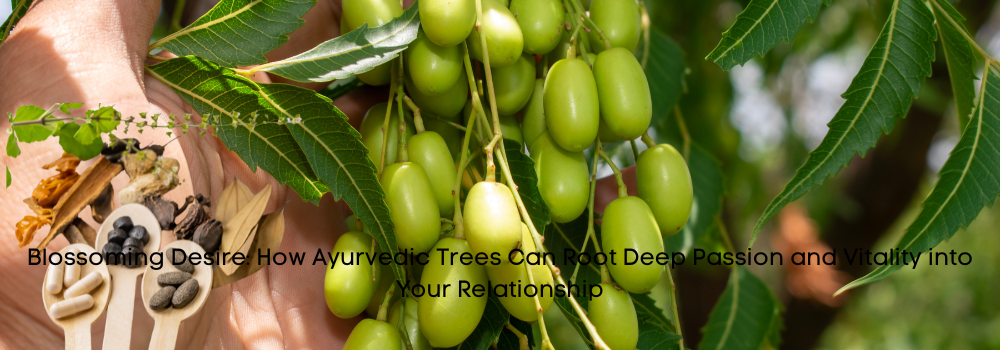
Introduction: Discover the ancient wisdom of Ayurveda through the power of nature. This blog explores ten remarkable trees revered in Ayurvedic medicine for their ability to boost sexual health and vitality. From enhancing libido to improving overall well-being, these trees offer natural solutions to enhance your sexual life. Dive into the greenery that surrounds us and unlock the secrets to a healthier, more fulfilling love life.
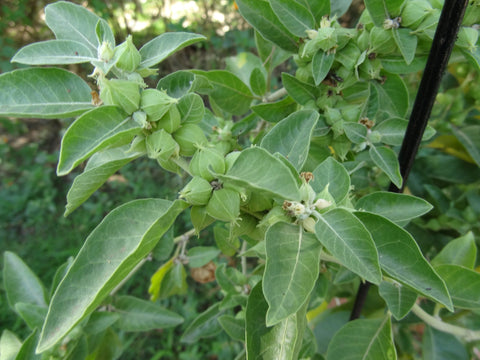
1. Ashwagandha (Withania somnifera), often hailed as the 'Indian Ginseng', is a cornerstone in the ancient practice of Ayurveda due to its remarkable adaptogenic properties. This powerful herb is revered for its ability to bolster the body's resilience to stress, thereby enhancing overall vitality and improving sexual health. Ashwagandha's roots and leaves are used to prepare extracts and powders that embody the essence of this adaptogen, making it accessible to people worldwide.
Key Benefits:
How to Use Ashwagandha: Ashwagandha can be consumed in various forms, including powders, capsules, and liquid extracts. The recommended dosage varies, but starting with a lower dose and gradually increasing as needed is generally advisable, always under the guidance of a healthcare provider to avoid any adverse effects.
Incorporating Ashwagandha into Your Routine: Adding Ashwagandha to your daily routine can be as simple as mixing the powder into a glass of warm milk before bedtime, which aids in relaxation and sleep, or taking supplements as directed by your health practitioner. For more detailed information on how to incorporate Ashwagandha into your life, visit our detailed guide at Kadiyam Nursery.
Scientific Studies and References: The efficacy of Ashwagandha in enhancing sexual health is supported by various scientific studies. Research indicates its potential in treating stress-related disorders, boosting testosterone levels in men, and improving reproductive health. For a comprehensive understanding of the research on Ashwagandha, trusted sources such as PubMed (https://pubmed.ncbi.nlm.nih.gov) offer numerous studies highlighting its benefits.
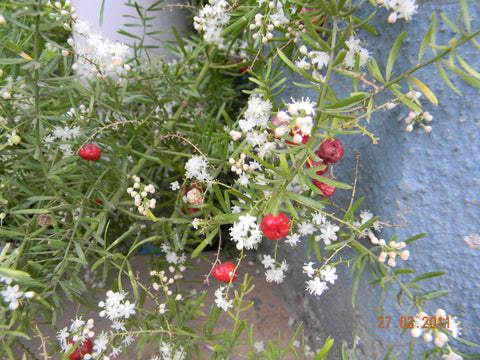
2. Shatavari (Asparagus racemosus) is a revered herb in Ayurveda, often hailed as the "Queen of Herbs" for its multifaceted health benefits, especially for women. This powerful plant is native to India and parts of the Himalayas, thriving in low jungle areas. Its name, Shatavari, translates to "having one hundred roots" and metaphorically means "having one hundred husbands," underscoring its use for female reproductive health.
Health Benefits: Shatavari is predominantly known for its phytoestrogenic properties, making it an invaluable herb for women through all stages of their life, from menstruation to menopause. It helps in balancing hormones, managing premenstrual syndrome (PMS) symptoms, and enhancing fertility. Furthermore, Shatavari supports lactation in new mothers by improving prolactin levels, thus aiding in breastfeeding.
For general wellness, Shatavari acts as an adaptogen, helping the body cope with physical and emotional stress. It nourishes the body, aids in digestion, and boosts the immune system. Its antioxidant properties help in detoxifying the body and fighting oxidative stress, contributing to overall vitality and longevity.
Usage and Dosage: Shatavari is available in various forms, including powder, tablet, and liquid extract. The powder form can be mixed with water, milk, or honey and is typically taken once or twice daily. The dosage may vary depending on the individual's health condition, so it's advisable to consult with an Ayurvedic practitioner or healthcare provider for personalized guidance.
Where to Find Shatavari: For those interested in incorporating Shatavari into their wellness routine, Kadiyam Nursery offers high-quality Shatavari plants, allowing individuals to grow this miraculous herb in their own garden. Growing Shatavari at home ensures you have a fresh, organic source of this beneficial herb right at your fingertips.
Safety and Precautions: While Shatavari is generally safe for most people, it is essential to consider potential side effects and interactions with other medications. Pregnant women or those with hormone-sensitive conditions should seek medical advice before using Shatavari.
Further Reading: To explore more about Shatavari and its benefits in Ayurveda, trusted websites such as The Ayurvedic Institute and WebMD offer comprehensive guides and research studies. These resources provide deeper insights into how Shatavari can be integrated into daily health practices for improved well-being.

3. Gokshura (Tribulus terrestris) is a plant that has been revered in Ayurveda for centuries due to its extensive health benefits, especially in the realm of sexual wellness. This herb is native to warm temperate and tropical regions in southern Europe, southern Asia, Africa, and Australia. Known for its spiny fruit, Gokshura is popularly used to enhance libido, support the urinary tract, and improve overall vitality.
Health Benefits:
Usage and Dosage: Gokshura can be consumed in various forms, including powder, tablets, and tea. The appropriate dosage may vary depending on the form of consumption and the specific health concern being addressed. It's essential to consult with a healthcare provider or an Ayurvedic practitioner to determine the correct dosage for your individual needs.
Scientific Studies: Research on Tribulus terrestris has provided evidence supporting its traditional uses, particularly its role in enhancing libido and sexual health. Studies indicate that Gokshura may improve sperm count and motility in men, while in women, it may contribute to improved sexual satisfaction and desire.
Safety and Precautions: While Gokshura is generally considered safe for most adults, it's crucial to be aware of potential side effects, such as gastrointestinal upset in some individuals. Pregnant and breastfeeding women should avoid using Gokshura due to the lack of sufficient safety data.
For those interested in exploring the scientific research on Gokshura further, trusted resources include PubMed (https://pubmed.ncbi.nlm.nih.gov) and the National Center for Biotechnology Information (https://www.ncbi.nlm.nih.gov).
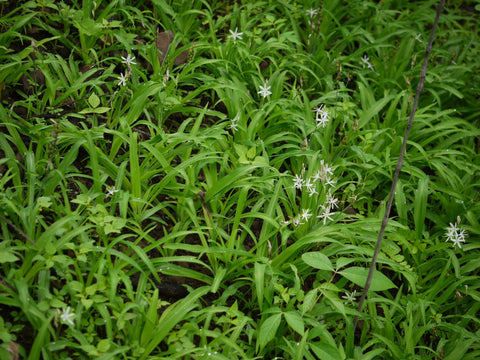
4. Safed Musli (Chlorophytum borivilianum) is a highly valued plant in Ayurvedic medicine, renowned for its remarkable health benefits, particularly in enhancing sexual health and vitality. This perennial herb, native to India, flourishes in the thick forests and is also cultivated for its medicinal properties. Safed Musli is often referred to as the 'White Gold' or 'Divya Aushad' in Ayurveda due to its wide range of health benefits.
Key Benefits:
Cultivation and Harvest: Safed Musli prefers a specific climate found in many parts of India, thriving in moist, deciduous forests. At Kadiyam Nursery, we cultivate Safed Musli using sustainable farming practices to ensure the highest quality of produce. The roots, which contain the plant's therapeutic properties, are harvested after the monsoon season when they are at their most potent.
Usage in Ayurveda: In Ayurvedic medicine, Safed Musli is used in the form of powders, tablets, and tonics. It is often combined with other beneficial herbs to maximize its effects. Its adaptogenic properties help in mitigating stress, enhancing it as a holistic treatment for improving general well-being alongside sexual health.
Scientific Research: Recent studies validate the traditional uses of Safed Musli, highlighting its potential as a natural aphrodisiac and its role in improving sexual function and overall health. Research indicates that its saponin and alkaloid content are key to its effectiveness.
Incorporating Safed Musli into Your Routine: Safed Musli can be easily incorporated into daily routines through dietary supplements or as an ingredient in various health concoctions. Always consult with a healthcare provider or an Ayurvedic practitioner to determine the appropriate dosage and form for your specific needs.
External Resources: To further explore the scientific studies and health benefits of Safed Musli, trusted websites such as PubMed and Healthline offer a wealth of information. These resources provide in-depth research findings and health advice from medical professionals.
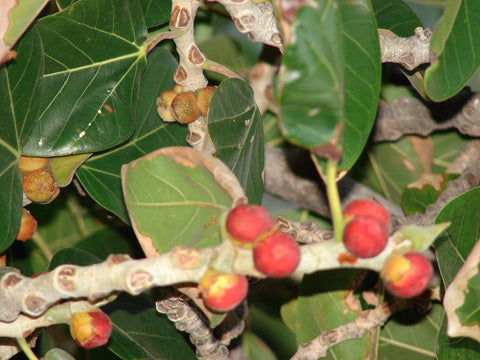
5. Banyan (Ficus benghalensis) is not just a majestic presence in the landscapes of India but also a tree with deep roots in Ayurvedic medicine. Known for its vast canopy and complex root system, the Banyan tree is revered as a symbol of immortality in many cultures due to its longevity and ability to continuously grow and spread. Its significance extends beyond the spiritual, playing a crucial role in traditional medicine with its various parts being utilized to treat a myriad of health conditions, including those related to sexual health.
Ayurvedic Significance: In Ayurveda, the Banyan tree is celebrated for its potent medicinal properties. Its bark, leaves, fruits (figs), and latex are used in various formulations to address a range of ailments. Particularly, it is esteemed for its ability to enhance fertility and treat erectile dysfunction, making it a vital component in Ayurvedic reproductive health treatments.
Medicinal Uses:
How to Use: The utilization of Banyan tree parts should be done under the guidance of an Ayurvedic practitioner, as specific preparations and dosages are crucial for effective treatment. Typically, powders, decoctions, and pastes are made from its leaves, bark, and latex to be used in various treatments.
For those interested in exploring the benefits of the Banyan tree and other Ayurvedic plants, visit Kadiyam Nursery for more information on how to grow these plants and integrate them into your wellness routine.
External Resources: To deepen your understanding of the Banyan tree's place in Ayurveda and its health benefits, trusted websites like The Ayurvedic Institute and Healthline offer extensive resources. These sites provide valuable insights into the practical applications and scientific backing of traditional remedies, including those derived from the Banyan tree.
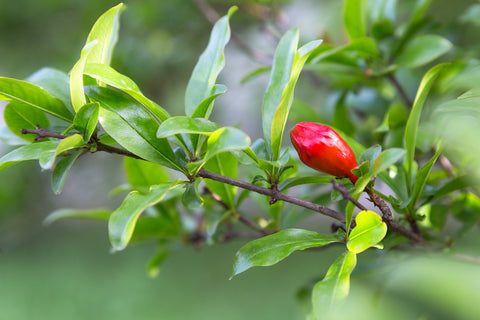
6. Pomegranate Tree (Punica granatum) is a gem in the world of Ayurveda and modern health for its multifaceted benefits, particularly in enhancing sexual health and vitality. Native to the Middle East and widely cultivated in many countries, this fruit-bearing tree has been revered throughout history not only for its delicious fruits but also for its medicinal properties.
Ayurvedic Perspective: In Ayurveda, the pomegranate is highly valued for its balancing effect on the three doshas: Vata, Pitta, and Kapha. It is considered a natural aphrodisiac, improving energy levels and blood circulation, which are vital for maintaining a healthy sexual life. The seeds and juice of pomegranate are rich in antioxidants, vitamins, and minerals that contribute to overall well-being and sexual health.
Health Benefits:
Cultivation and Care: Pomegranate trees thrive in hot, dry climates but can be grown in a variety of soil types. They require full sun and well-drained soil to produce the best fruit. Minimal care is needed once established, making them an excellent choice for gardeners of all levels. For detailed cultivation tips, visit Kadiyam Nursery's pomegranate care guide.
Incorporating Pomegranate into Your Diet: Easily incorporate pomegranate into your diet by consuming the seeds, juice, or extracts. Its sweet and tangy flavor makes it a delightful addition to salads, desserts, and beverages.

7. Arjuna (Terminalia arjuna) is a tree that holds a special place in Ayurvedic medicine. Known for its heart-health benefits, Arjuna's versatility extends to improving sexual wellness by enhancing stamina and physical performance. This majestic tree, native to India, has been used for centuries to treat various ailments, making it a cornerstone of traditional herbal remedies.
Botanical Description: The Arjuna tree is distinguished by its tall stature and wide canopy, with smooth, grey bark that peels off in large sheets. It's the bark that's primarily harvested for its medicinal properties, rich in bioactive compounds such as tannins, flavonoids, and glycosides. These compounds contribute to Arjuna's antioxidant, anti-inflammatory, and cardioprotective effects.
Health Benefits:
Usage and Dosage: Arjuna can be consumed in various forms, including powder, capsule, or decoction. The typical dosage of Arjuna bark powder is 1-2 grams, taken with milk or water, twice daily. However, it's crucial to consult an Ayurvedic practitioner for personalized advice tailored to individual health needs.
Incorporating Arjuna in Your Life: For those looking to benefit from Arjuna, Kadiyam Nursery offers a variety of options to incorporate this potent tree into your garden or health regimen. Learn more about Arjuna and how to grow it at Kadiyam Nursery's Arjuna page.
External Resources: For further information on the scientific studies supporting Arjuna's health benefits, trusted sources include PubMed and The Ayurvedic Institute. These platforms provide in-depth research and articles on the efficacy and uses of Terminalia arjuna in traditional and modern medicine.
Arjuna's unique blend of cardiac-boosting and antioxidant properties, coupled with its ability to foster emotional balance, makes it a powerful ally in enhancing sexual health and overall well-being. Embrace the Ayurvedic tradition by exploring the natural benefits of Terminalia arjuna, and let nature's wisdom guide you to a healthier, more vibrant life.
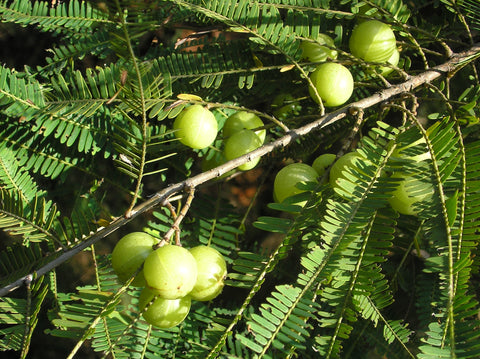
8. Amla, also known as Indian Gooseberry (Phyllanthus emblica), is a key ingredient in Ayurvedic medicine and an invaluable component of health and wellness traditions across India. Renowned for its high vitamin C content, which is several times that of an orange, Amla serves not just as a powerful antioxidant but also as an essential nutrient for enhancing immunity, metabolism, and the health of skin and hair.
The Amla tree is a small to medium-sized deciduous plant that thrives in the Indian subcontinent. Its fruits are spherical, light greenish-yellow, quite fibrous, and have a sour taste with a bitter aftertaste. A hallmark of Ayurvedic remedies, Amla is used both fresh and in dried forms. Its versatility in Ayurvedic treatments is unparalleled, addressing issues from digestive problems to hair care.
Health Benefits:
Culinary Uses:
Amla is not just limited to medicinal uses; it's also a popular ingredient in Indian culinary practices. It is used in pickles, jams, and chutneys for its tangy flavor. Amla juice is a refreshing drink, often sweetened with honey to counteract its sourness.
Cultivation:
At Kadiyam Nursery, we cultivate Amla plants with care, ensuring they grow in optimal conditions to yield the best fruits. Our expertise in nurturing Amla trees allows us to offer plants that can be integrated into gardens and landscapes, providing both health benefits and aesthetic beauty.
Research and Studies:
Numerous studies validate the health benefits of Amla. Research has shown its effectiveness in improving heart health, enhancing hair growth, and boosting the immune system, among others. Trusted sources like the National Center for Biotechnology Information offer in-depth studies on Amla's nutritional and medicinal properties.
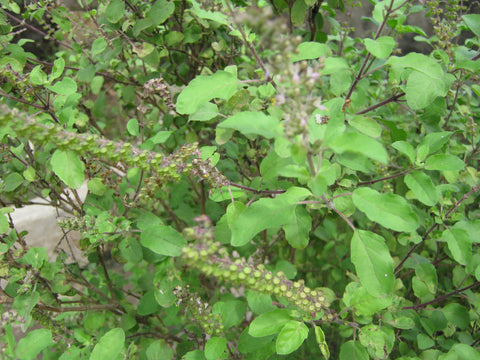
9. Tulsi (Ocimum sanctum) In the heart of Ayurvedic medicine lies Tulsi, also known as Holy Basil, revered not just for its spiritual sanctity but also for its comprehensive health benefits. Ocimum sanctum, with its inherent purifying qualities, has been a cornerstone in traditional Indian households for centuries, embodying a holistic approach to well-being.
Cultivation and Types: Tulsi thrives in warm and tropical climates, making it a staple in the gardens of Kadiyam Nursery. It comes in several varieties, each with its unique aroma and medicinal properties. The most common types include Rama Tulsi, Krishna Tulsi, and Vana Tulsi, offering a range to suit different therapeutic needs and environmental conditions. For those interested in cultivating this versatile plant, visit Kadiyam Nursery's Tulsi Collection.
Health Benefits: Tulsi is a potent adaptogen, a substance that helps the body adapt to stress and exert a normalizing effect upon bodily processes. It's renowned for its ability to strengthen the immune system, support heart health, and stabilize blood sugar levels. Furthermore, its anti-inflammatory and antioxidant properties make it a valuable ally in combating respiratory ailments, including asthma and chronic bronchitis. For an in-depth exploration of Tulsi's health benefits, refer to The Ayurvedic Institute.
Spiritual and Psychological Benefits: Beyond its physical health benefits, Tulsi holds a sacred place in Indian culture, believed to protect households from negative influences and promote spiritual purity. Its calming effects on the mind make it an excellent herb for meditation and stress relief. This duality of Tulsi, serving both physiological and spiritual well-being, underscores the Ayurvedic belief in the interconnectedness of body, mind, and spirit.
Usage and Recipes: Tulsi can be consumed in various forms, including fresh leaves, herbal tea, dried powder, or as an essential oil. A simple yet powerful way to incorporate Tulsi into your daily routine is through Tulsi tea, known for its soothing and revitalizing effects. Adding a few leaves to your morning tea can kickstart your day with a boost of energy and clarity.
Conservation and Sustainable Practices: As with all medicinal plants, sustainable cultivation practices are crucial to preserving Tulsi's potency and availability for future generations. Kadiyam Nursery is committed to eco-friendly farming techniques, ensuring that our Tulsi plants are grown without the use of harmful pesticides or chemicals.
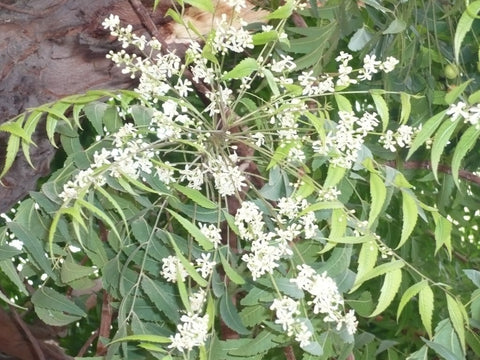
10. Neem (Azadirachta indica), often dubbed the "Village Pharmacy," holds a pivotal place in traditional medicine, especially within Ayurveda. This versatile tree is native to the Indian subcontinent, with a rich history of use spanning thousands of years. Its myriad benefits span from antimicrobial properties to its pivotal role in ecological sustainability. Here, we delve into the multifaceted advantages and uses of Neem, showcasing its significance in natural health and wellness practices.
Historical and Cultural Significance Neem has been an integral part of Ayurvedic medicine for over 5,000 years. Its use is well-documented in ancient texts for its health-promoting properties, making it a staple in natural healing and preventive healthcare. Every part of the tree, including its leaves, bark, seeds, and roots, has been used to prepare various remedies for a wide range of ailments.
Health Benefits and Uses
Agricultural and Environmental Uses Neem also plays a crucial role in sustainable agriculture and environmental protection. Its natural pesticide properties make it a safer alternative to chemical pesticides, promoting healthier crops and soil. Additionally, Neem trees are known for their ability to withstand harsh conditions, making them invaluable for reforestation and combating desertification.
Incorporating Neem into Daily Life For those looking to harness the benefits of Neem, it's available in various forms, including oils, powders, and supplements. Incorporating Neem products into your skincare routine or as part of your health supplements can offer natural, holistic benefits to your daily life.
Learn More and Purchase Neem Products To explore Neem-based products and learn more about how to incorporate them into your wellness routine, visit Kadiyam Nursery. Our selection includes a range of Neem products cultivated with the utmost care, ensuring you receive the full natural benefits of this remarkable tree.
External Resources for Further Reading
By integrating Neem into your lifestyle, you embrace a holistic approach to health and well-being, grounded in the timeless wisdom of Ayurveda. Whether through personal care products or as part of your health regimen, Neem stands as a testament to nature's power to heal and sustain.
Conclusion: Ayurveda offers a treasure trove of natural remedies to enhance sexual health and wellness. By embracing the wisdom of these ten trees, you can explore holistic ways to improve your love life and overall well-being. Visit our nursery at Kadiyam Nursery to learn more about how you can incorporate these plants into your life.
External Resources: For further reading and to deepen your understanding of Ayurvedic practices for sexual health, we recommend visiting trusted websites such as Ayurveda.com and The Ayurvedic Institute.
Leave a comment